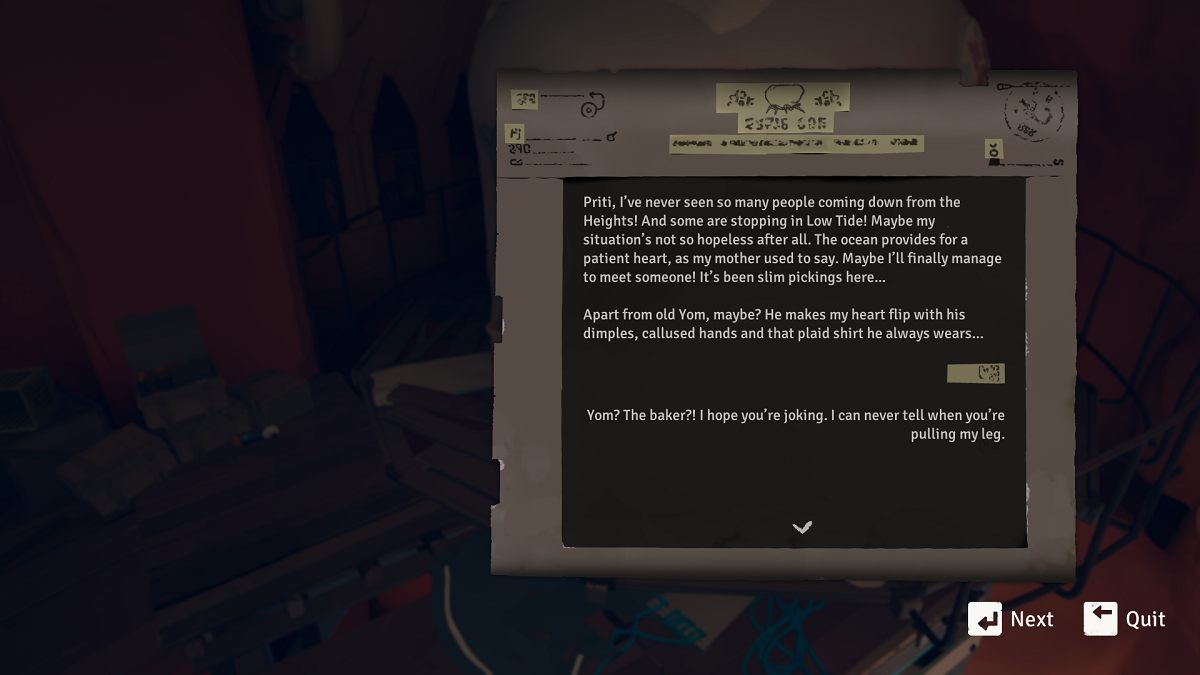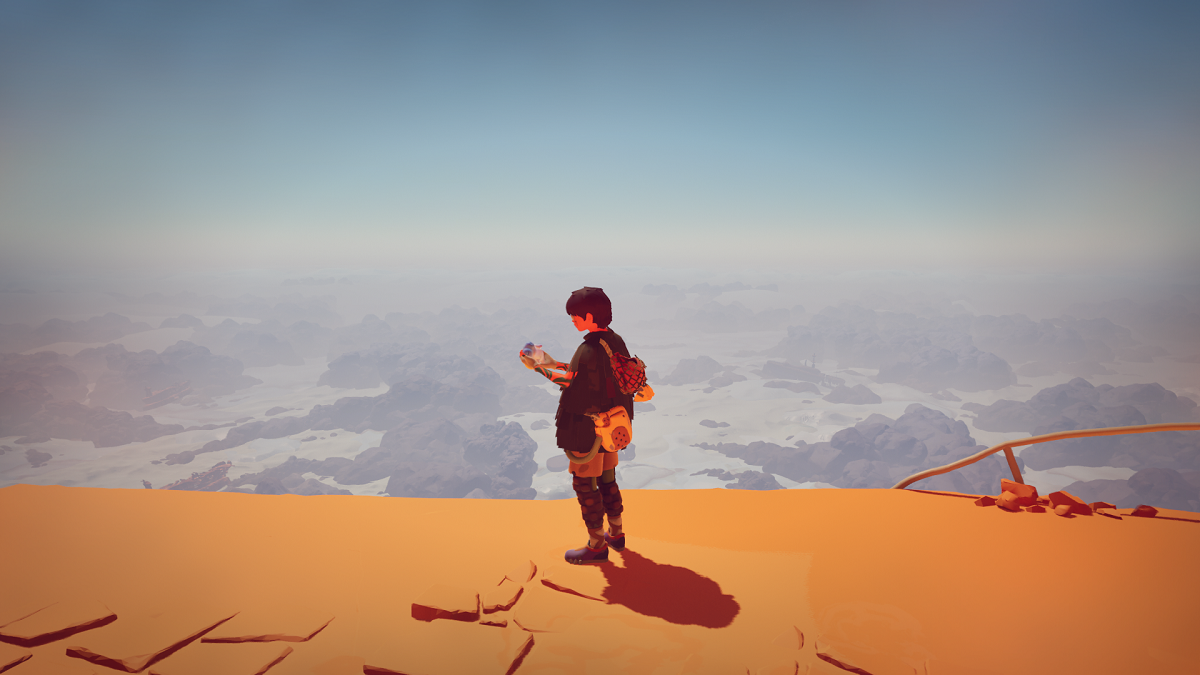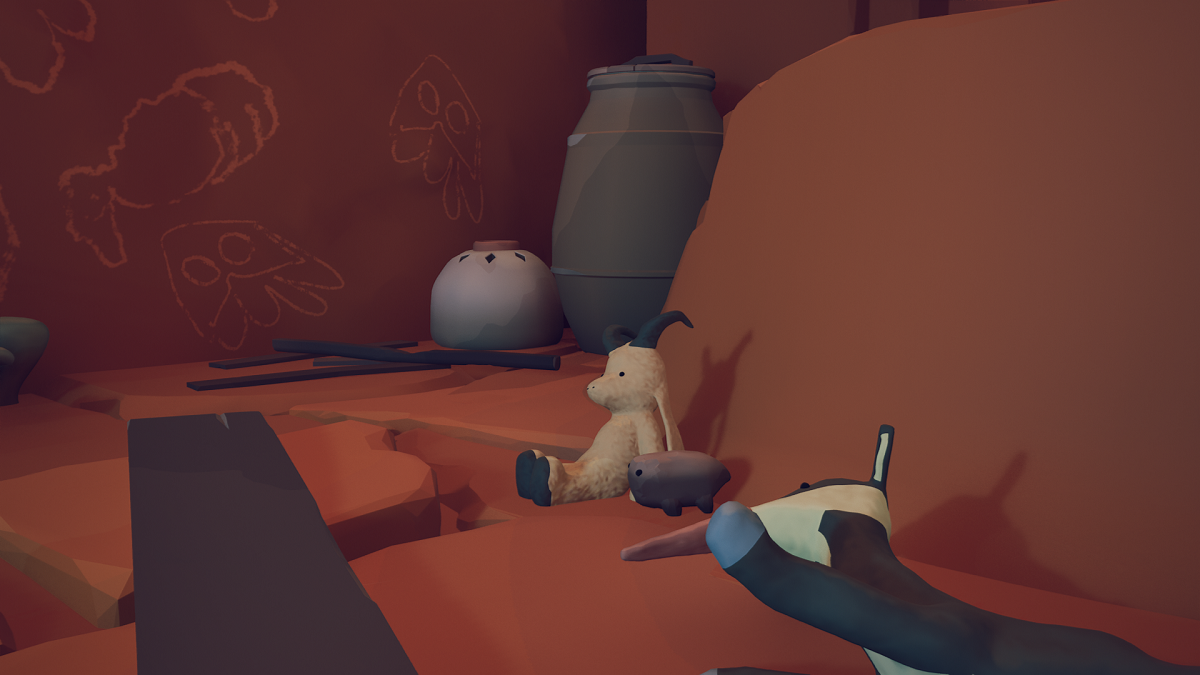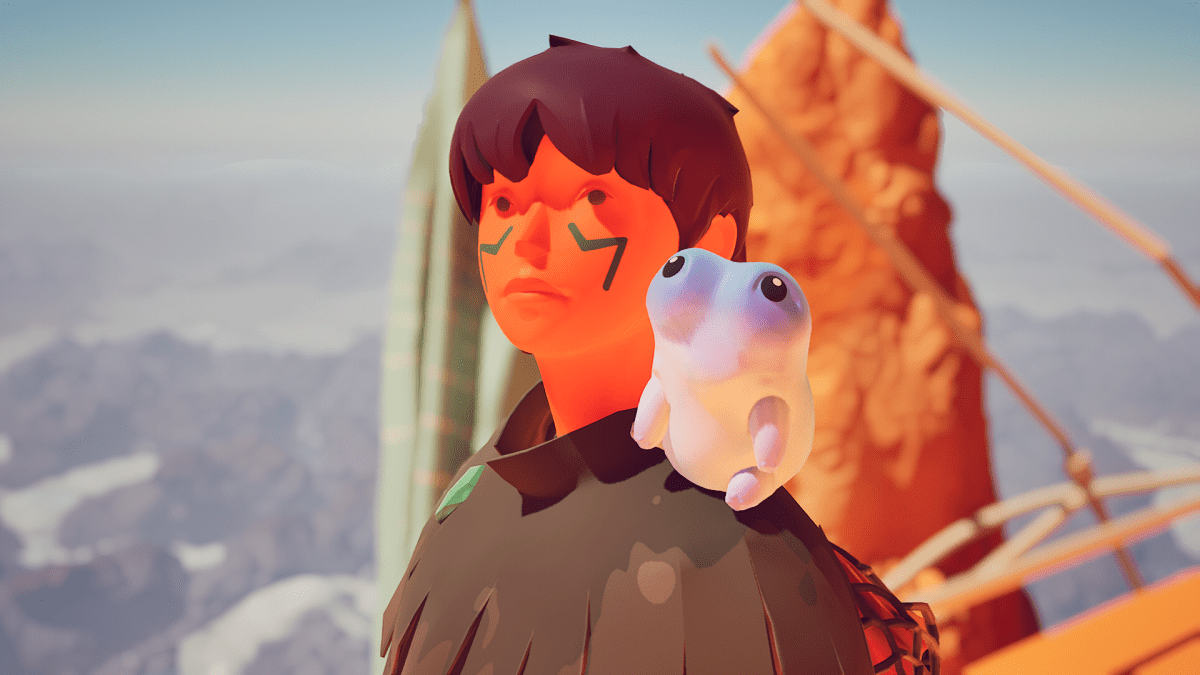Warning: The following article on how Jusant uses simplicity to create meaning in its empty world contains spoilers for the game.
From the plain yet warm letters to the pitter-patter-like motion of climbing ginger rocks and tarnished hooks, simplicity is used in Jusant to create meaning in its empty world: a feeling of connection, a flood of humanity’s touch. In the absence of people, remnants of a desolate world thrummed musically in my ears and forgotten items took the place of owners, each moment further proving the importance of the little, simple things I would see, hear, and do.
Heart-strung by its visuals, I’ve had my eye on Jusant for months since its early trailers, but after playing this mellow rock-climbing game, I really fell in love with the journey more than the spectacle.
As I passed homes built into the jagged frame of the Tower – wood peeling off and insides stirred up – ceramics and odd bits and bobs greeted me, the occasional letters written by people I never met left on scorched rocks and inside boxes.
My favorite letter followed the last interaction between two good friends, one swooning over her chance to score a partner during the Tower’s water shortage crisis. The other friend jabbed at her crush on the old resident baker, hoping she was joking, and that made me chuckle a little.

Not all letters try to be relatable, but from those I loved, the simplicity of everyday conversations in Jusant told me about the people more than their brave last-ditch efforts to survive. In a moment of uncertainty, the letters speak of their humanity – a reflection of how our world would react and manage despite nature crashing down on us. Jusant doesn’t just toe the line but seeks to emulate what that looks like through meaningful interactions as you journey skyward.
Related: Jusant Review
Similarly, that meaning felt present in the rock climbing and reminded me of a time in my younger life. I wasn’t adventurous enough to rock climb, but riding bikes on streets and through backyard woods was my jam. I remember the pulse-like rhythm of pumping my legs to build speed, the chill wind biting my cheeks, and the sound of tires rolling around and around. Riding a bike was a simple joy I’ve missed, and I found it again while playing Jusant.
The bumbling chain of silver metallic gears of a bike reflected in the coiling tick of the climbing rope. Instead of rubbered handles and paddles, my controller’s thumbsticks and triggers controlled my momentum. One after another, I clutched pebbles jutting out of the Tower. It was a balanced pattern of holding and lifting my fingers on the triggers, an extension of the main character’s left and right hands – slapping against stone and elbows bending.

Over time, this movement with your hands could lose that initial wonder as opposed to when you first start Jusant, but its deliberate pacing throughout the experience forces you to pause. Survey the environment, take a breather, and hang out a bit. The goal is to climb, but nothing stops you from simply being. To that same point, Jusant understands this strength it has over the player and has hidden conch shell-like collectibles all over for you to find.
Held by the main character’s ear, the pastel green conch shells slowly echoed an ocean of sound effects into my headphones: a man tinkering away with tools, children playing by a fountain, and dishes sliding onto each other. As they resounded, my screen snapped to objects around the area, from stuffed dolls to a restaurant with broken bowls and chairs.

You can listen to these sounds endlessly; Jusant doesn’t want to rush you out of hearing the mundane clanks of cups and muted chitter-chatter. The shells are an extension of the subtle simplicity that the game wants you to latch onto, where its character truly shines as more than a rock climbing adventure but a human exploration of the little things in our lives.
Putting one hand before the other, the remnants of sound coming from places in our childhood, the words shared with others despite our struggles. Our human senses absorb many meaningful aspects of life, and Jusant creates that in its own way to deliver a spellbinding experience.






Published: Nov 9, 2023 02:59 pm